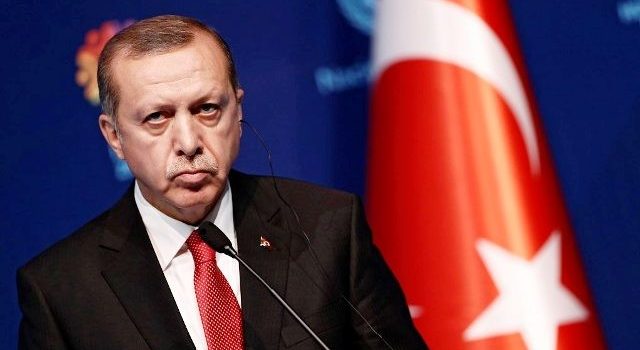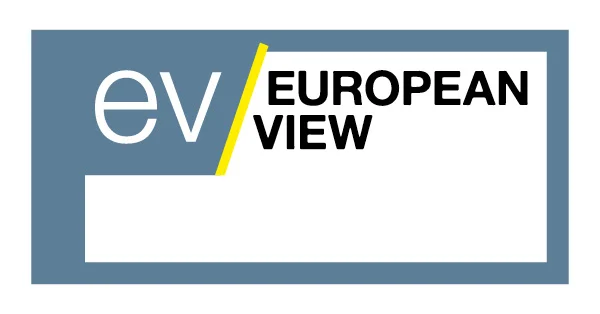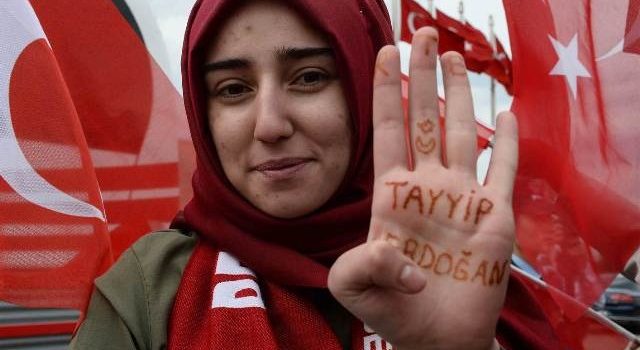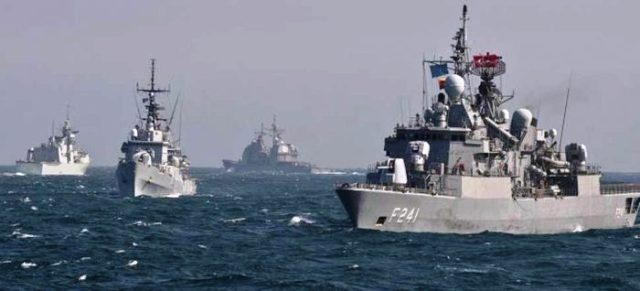Abstract
Greece’s economic crisis is a by-product of a deeper institutional, political and societal crisis. The crisis brought about a bailout programme conditional on fiscal and structural reform, as set forth in three successive memoranda of understanding between Greece and its creditors. The
domestic political class accepted these memoranda, albeit reluctantly. After the initial response with its populist overtones and the subsequent long and tortuous process of adjustment, the country now seems close to a consensus on a minimum reform agenda. However, Greece needs
a change of paradigm: a shift away from deep-rooted attitudes that have impaired the country’s tremendous potential, to a culture of reform and growth. Its political leadership has to come up with a plan, one embraced by the people, that will push the country out of the current catastrophic interlude and lead it into a new virtuous cycle.
Keywords
Populism, Public administration reform, Modernisation, Financial crisis, Europe
Introduction
In 1974 Prime Minister Konstantinos Karamanlis launched the most ambitious modernisation programme in modern Greek history. The peaceful restoration of democracy and Greece’s entry in 1981 into what was then the European Community ushered in a virtuous cycle that brought about political stability, institutional reforms and economic growth. Through an impeccable and orderly transition, Karamanlis established and subsequently consolidated the country’s modern democratic institutions. The monarchy was abolished through a free and well-organised referendum, and Greece adopted a modern and democratic constitution. Membership of NATO and the European Community guaranteed
security, political stability and economic growth. At long last the country was leaving behind a history of poverty and political turbulence.
However, four decades later, Greece was hit by the worst crisis of its post–Second World War history. The Greek state went bankrupt for the fifth time since its creation in the nineteenth century. What went wrong? What precipitated this modern Greek tragedy that has cost the country one-quarter of its gross domestic product (GDP), high unemployment rates especially among young people, a new wave of emigration, a brain drain,
and societal and political malaise? The debate on the causes of the crisis has revolved around numbers, economic indicators and indexes. Furthermore, a heated debate on the bailout programmes1 has divided Greek society. However, Greece’s economic crisis is a by-product of a deeper institutional, political and societal crisis.
Karamanlis’s successors failed to complete the ambitious reform project he had started in 1974. The political system regressed to the clientelistic and populist politics of the past and to an economic model of parasitic consumerism. The country lived beyond its means, slipping into a model of ‘borrowed prosperity’. The 2008 international financial crisis exposed and exacerbated Greece’s structural deficiencies. The international financial markets questioned Greece’s ability to service its foreign debt, and interest rates skyrocketed. Greece was forced to officially request assistance from its partners in the EU and the IMF. The result was a bailout programme with severe fiscal adjustment terms imposed by its lenders. The country’s standard of living was painfully brought back down from the inflated levels that excessive borrowing had enabled to the level of the true production potential of the Greek economy. Instead of being self-critical, the political elite and society at large looked for scapegoats: someone else was to blame for all our problems. In the past it had been Uncle Sam. Now it was Wolfgang Schäuble, Germany’s Finance Minister in 2009–17. This led to a sharp increase in Euroscepticism.
The populist politics of the 1980s
The first signs of the Greek debt crisis were already visible in the early 1980s. When Karamanlis’s successor Andreas Papandreou took over the premiership in 1981, he opted to discontinue the ambitious reform project started in 1974. Instead, he adopted a populist approach to government, which turned the state bureaucracy and public administration into the spoils of party politics. He put off much-needed structural reforms in critical sectors such as education, healthcare and social security. The Greek state and households resorted to massive borrowing to sustain a consumerist model which was beyond their actual means.
Under Papandreou’s leadership, the 1980s brought about the restoration of old party politics. The political system that emerged after the military junta (1967–74) was bipolar, with two contending parties: New Democracy (Nea Dimokratia) on the centre–right and the Pan-Hellenic Socialist Movement (Panellinio Sosialistiko Kinima, PASOK) on the centre–left. These parties were spin-offs of two pre-junta parties: the National Radical Union (Ethniki Rizospastiki Enosis) and the Centre Union (Enosis Kentrou). What made the old and new party systems similar was that both retained the cult of leadership surrounding their charismatic founders and the system of patronage that has characterisedthe Greek state since its creation. Furthermore, the transition to democracy did not eliminate the patriarchal structure of Greek society and the clientelistic nature of the political system (Kondylis 1995, 11–47). PASOK, founded by Papandreou, not only perpetuated this patron–client system but further developed it, adapting it to mass politics and mass democracy. Votes were traded for favours, jobs and benefits. Instead of becoming an
agent for economic growth and institutional reform, the civil service and public administration functioned for the benefit of the clientelistic networks of the governing parties. In essence the state bureaucracy and the public administration became the facilitators of this patron–client system. The party that won the elections would make control of the state bureaucracy its first priority.
In the hands of the governing party, the state bureaucracy and public administration became the employer of party clients. Hiring was done on the basis of party affiliation rather than merit. General directors were replaced by secretary generals, who were party apparatchiks. The sweeping turnover of secretary generals after each election and the transfer of responsibility for policy formulation and implementation to reluctant employees led to bureaucratic inertia and institutional discontinuity. The total lack of evaluation and the absence of incentives and sanctions further impaired the effectiveness and efficiency of the public administration.
This malaise was aggravated by the adoption of the Single Payroll in 1984 and the Single Rating System in 1986. Pay and promotion were totally decoupled from performance, and positions from responsibilities (Iordanoglou 2013, 24–5; see also Kalyvas 2015, 203–4). The public administration did not operate on the basis of rational organisational rules that recognised merit and efforts made in the service of public interest. Inevitably, it became a vehicle for the promotion of corporate and party interests and a breeding ground for corruption and opaqueness.
In education the populist fervour of the socialists had equally disastrous results. Every notion of evaluation and excellence was exorcised. Evaluation was abolished from the school system and school standards were lowered. A mentality characterised by a levelling egalitarianism and catering to the lowest common denominator was grafted onto the education system. In higher education party affiliation and the participation of students in the election of university administrative bodies brought about a culture of corruption. The student movement was depoliticised and turned into a guild.
Overall, PASOK’s populism in the 1980s proved to be disastrous. It corrupted Greek society’s system of values and led to moral relativism and cynicism. Traditional values such as family, religion, law and order, meritocracy and evaluation were marginalised and replaced by a hedonistic materialism and an unbridled consumerism that relied on the influx of cheap European money. The dependence of citizens’ professional careers on party membership corrupted the ethos of society and the quality of our democratic system. The clientelistic character of politics contaminated parties with a statist and populist attitude. Parties and politicians became the all-powerful donors, and the individual interests of client- citizens were satisfied through loopholes in the law, amendments and favours. With the establishment of mass democracy, clientelism was transferred from the level of the citizens to the level of interest groups. And in the era of the citizen-consumer, it took the form of
satisfying consumer demands and safeguarding the level of consumption, even though this was beyond the country’s productive potential. Material benefits were provided to interest groups in exchange for their political support. The osmosis between interest groups and
parties reached the point where ‘parties eventually became captives of their executives’ particular interests in every area’ (Μavrogordatos 2005, 238–9, author’s translation).
The collusion between, on the one hand, citizens and interest groups that embraced the parasitic consumption model and, on the other, the political elites that promoted it to perpetuate their stay in power distorted the political system and led to an overall crisis. Moreover, the electoral system reproduced old party cleavages and systems of patronage, making it almost impossible for any politician to carry out the much-needed reforms for fear of being voted out of office. This fear undermined the reform project.
The missed opportunity of Economic and Monetary Union
Greece’s entry and integration into the European Economic Community, the EU and then the eurozone were opportunities to modernise and rationalise the country’s economic model. That is, they were opportunities to converge with the other European economies and adapt to the requirements of the competitive environment of the globalised economy. But instead of moving in this direction, the country channelled European funds into consumerism, and not into productive investments. Agricultural production is a typical example. As Maravegias (2010, 11, author’s translation) notes, ‘[t]he policy of the 1980s was a continuous increase in income subsidies without any provision to improve the
international competitiveness of the agricultural sector, thus avoiding the necessary structural and institutional changes (land use, regulation of succession law, definition of professional farmers, taxation of farm income, etc.).’
In the 1980s, years dubbed ‘the age of populism’, public debt tripled, rising from 28% of GDP in 1980 to 89% in 1990 (Kathimerini 2011). By 2003 it had climbed to 98% of GDP. In the 1980s, Greece had the largest increase in civil servants in its history. From 1981 to 1991 the public sector ballooned by 42% (Iordanoglu 2013, 121–34). Attempts at structural changes made in the 1990s failed to reform the public administration and improve the competitiveness of the Greek economy. The subsequent entry into the eurozone led to improvements in the economy and living standards, but, at the same time, to the relaxation of macroeconomic policy and to an increase in fiscal deficits (Alogoskoufis 2016).
Private consumption and public expenditure rose at breakneck speed.
Both were fuelled to a large extent by access to low-cost lending funds from domestic and international capital markets and the banking system. Beginning with the liberalisation of the financial system in 1994, consumer and mortgage loans to households increased rapidly. With the country’s accession to the Economic and Monetary Union (EMU) in 2001, access to international money and capital markets for the state, banks and businesses was almost unlimited. Nominal and real lending rates fell dramatically. The inflows of foreign capital facilitated an explosive increase in bank funding at an average annual rate of 20%—three times faster than the nominal GDP. Private investments, although increased in size and as a percentage of GDP, were to a considerable extent in residential construction and not productive activities. (Karamouzis and Anastasatos 2011, 3, author’s translation; see Kalyvas 2015, 215).
The standard of living improved significantly. In 2005 Greece ranked twenty-second in the quality-of-life index, above countries like Germany, Belgium and France (Economist Intelligence Unit 2005). But this prosperity had feet of clay. The excessive public and private borrowing and the waste of resources left the country over-indebted (Arvanitopoulos 2014, 15–37). As Alogoskoufis (2016, author’s translation) explains,
The increase in investments and the reduction of savings led in 1998 to large deficits in the current-account balance. The already high public debt continued to be replenished but for the most part was gradually converted into a foreign debt. The Greek banks extended their lending domestically, and to obtain liquidity, they made Greek state bonds they held from the past available abroad, contributing significantly to the conversion of public debt into foreign debt.
This model of state-owned entrepreneurship, mass public-sector employment, excessive borrowing (by the state and households) and super-consumerism supported and reproduced anachronistic structures of development and power. It displayed low receptiveness to the promotion of structural changes and the assimilation of technological innovations that would have helped increase productivity and improve the competitiveness of the economy. The country borrowed heavily and, eventually, sank into debt.
The budget deficits widened when the 2008 financial crisis erupted. Karamanlis, Prime Minister in the New Democracy government at the time, proposed a series of courageous measures to curb the public deficit and debt. He warned about the severity of the crisis and sought the consent of the major political parties to deal with it (Papathanasiou 2011). PASOK, on the other hand, refused to agree to a candidate for president of the
Republic and forced an early election. Running under the slogan ‘There is money’ and promising everything to everyone and benefits exceeding €15 billion, it won the elections. When it came to power, its delayed reaction in dealing with the crisis proved to be disastrous. The international financial markets questioned Greece’s ability to service the foreign debt and the spreads began to widen.
A series of mistakes by PASOK’s political leaders transformed a deficit problem into a borrowing problem. These mistakes worsened the country’s position and led it into a tailspin. Alogoskoufis has written that, due to ‘these domestic political mistakes and because of the European Central Bank’s failure to function as a lender of last resort for EU governments and commercial banks, Greece was faced with a sudden halt in borrowing from the international financial system, which led to it officially requesting assistance from its partners in the EU and the IMF’ (2016, author’s translation).
To face the crippling economic crisis, Greece’s government accepted a financial bailout programme that was conditional on an economic and financial adjustment programme and structural reforms. This was reflected in three successive memoranda of understanding between Greece and its international partners. The domestic political class accepted the conditions, albeit reluctantly. The imposition of long-needed reforms by Greece’s lenders resulted in the reform project losing popular support. Initially, most political parties took an anti-memoranda stance, reassuring their voters that it would soon be possible to return to business as usual. The apotheosis of populism and irresponsibility came when the Coalition of the Radical Left (Synaspismos Rizospastikis Aristeras, SYRIZA) opposition party and its leadership rose to power on a spree of promises that raised unrealistic expectations in the midst of Greece’s most severe crisis.
Eventually, Prime Minister Alexis Tsipras, leader of SYRIZA, developed a more pragmatic approach towards the memoranda of understanding. Unfortunately, Tsipras’s gradual transition to pragmatism came after the catastrophic first eight months and negotiations with the lenders that cost the country almost €80 billion in additional debt and resulted in a bank run and the imposition of capital controls. Greece’s recovering economy was derailed again and thrown back into recession. Everything that had been achieved by the New Democracy – PASOK coalition government between 2012 and 2015 was wasted. So were the immense sacrifices of the Greek people.
On a positive note, New Democracy, now in opposition, elected a new leadership on a pro-reform agenda and not on the basis of anti-memoranda rhetoric. If successful in the next election, as the polls indicate, it will not have been elected under false premises. And today’s governing coalition, which is led by SYRIZA, will have great difficulty returning to its irresponsible past. For the first time since the crisis erupted, the major Greek parties will be in sync with the politics of pragmatism and reform. Following a period of populism and the subsequent long and tortuous process of adjustment, the country seems close to a minimum consensus on a sensible reform agenda.
Conclusion
Such a consensus is especially urgent at a time when rapid changes on a global scale are adding elements of uncertainty and risk to today’s reality. Globalisation has brought new levels of development and prosperity. At the same time, however, it has created new inequalities both between and within countries (Steger 2006). Together with international and domestic conflicts, these inequalities have been creating waves of migrants and refugees that are testing the cohesion of Western societies, including Greece’s, and giving rise to what Putnam (2000) called an overload of the sociopsychological system. Moreover, the revolution in new technologies has produced sweeping changes in production and in the everyday lives of citizens (Kennedy 1994). These changes are creating new layers of privileged and unprivileged citizens.
As with the challenges of the new era more generally, Greece’s problems cannot be addressed by the over-simplified ideologies of populism. Even a consensus on a minimum reform agenda will not suffice. The country needs a change of paradigm. Deeprooted attitudes that have impaired the country’s tremendous potential need to be replaced with a culture of reform and growth. Greece needs a new economic model that establishes the right balance between productivity and performance, on the one hand, and consumption and enjoyment, on the other. It needs an ambitious plan for the reconstruction of the productive sectors of the economy based on the country’s comparative advantages. Greece needs a new social contract between its society and its political leadership on a concerted plan of reform and change. The new plan needs to be embraced by Greece’s people, and it will have to make the current catastrophic interlude a thing of the past and lead to a new virtuous cycle.
Note: Greece has benefited from three economic adjustment programmes (or bailout packages or memoranda of understanding). They were signed in 2010, 2012 and 2015. The purpose of these programmes was to provide conditional financial assistance to Greece to prevent economic collapse.
References
Alogoskoufis, G. (2016). Ellada kai Evropaiki Enusi. Mia Taragmeni Economiki Sxesi [Greece and the EU: A turbulent economic relationship]. Ta Nea, 5–6 November.
Arvanitopoulos, C. (2014). Fileleftherismos [Liberalism]. 2nd ed. Athens: Quality Publications.
Economist Intelligence Unit. (2005). The Economist Intelligence Unit’s quality-of-life index. http://www.economist.com/media/pdf/QUALITY_OF_LIFE.pdf. Accessed 2 February 2018.
Iordanoglou, C. (2013). Kratos kai Omades Symferonton [State and interest groups]. Athens: Polis Publications.
Kalyvas, S. (2015). Thriamvi kai Katastrophes [Disasters and triumphs]. Athens: Papadopoulos Publishing.
Karamouzis, N., & Anastasatos, T. (2011). The development of the Greek economy: Sources, prospects and the role of investments and exports. Eurobank Research, Economy and Markets, 6(3), 3–9.
Kathimerini. (2011). The decade of the 80s: The age of populism. 26 June.
Kennedy, P. (1994). Preparing for the twenty-first century. New York: Vintage Books.
Kondylis, P. (1995). I Parakmi tou Astikou Politismou [The decline of bourgeois culture]. Athens: Themelio Publications.
Maravegias, N. (2010). Agrotiki Politiki, Epidotiseis horis domikes metarithmiseis [Agricultural policy: Subsidies without structural reforms]. In P. Panagiotopoulos & V. Vamvakas (eds.), Ellada sta 1980s: Kinoniko, Politico & Politismiko Lexiko [Greece in the 80s: Social, political and cultural dictionary] (pp. 10–13). Athens: The Passage Publishing.
Μavrogordatos, G. T. (2005). Omathes Piesis kai Dimokratia [Pressure groups and democracy]. 3rd ed. Athens: Patakis Publishers.
Papathanasiou, G. (2011). Me tin glossa ton arithmon: I Alithia gio tin Economia [With the language of numbers: The truth about the economy]. http://www.papathanassiou.gr/numbers. pdf. Accessed 2 February 2018.
Putnam, R. D. (2000). Bowling alone. New York: Simon and Schuster.
Steger, M. B. (2006). Pagosmiopiisi [Globalisation]. Athens: Greek Letters.





